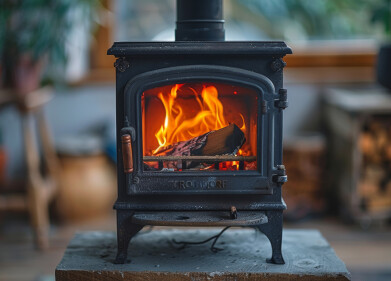Air clean up
How Does Noise Pollution Affect Birds?
Jan 17 2018
We already know that noise pollution is affecting our own health. Loud noises and constant disturbances provoke a stress response in our bodies due to the brain identifying them as danger signals. However, a new study has closely analysed the effect of noise pollution on wildlife - more specifically, birds. With birds relying on their hearing to avoid danger, research into noise pollution is needed to outline and address what it is doing.
Birds exposed to noise
The study has measured the effect of prolonged exposure to noise on birds. Lead author Nathan Kleist, has stated that this study is considered to be the most integrated to date, showing key results. Over 200 nesting boxes were set up at various distances from oil and compressors.
Anthropogenic noise, emitted from the oil and gas compressors, is becoming a global issue due to the oil market now worth a staggering $1 trillion per year. The idea of the study was to measure the stress levels of the birds in comparison to the distance they were nesting to the oil and gas compressors.
Alarmingly, the study shows that noise pollution significantly affects the birds nesting closer to the compressors. So much so, that they were demonstrating Post Traumatic Stress Disorder-like (PTSD) symptoms.
How can birds show PTSD symptoms?
The stress hormone corticosterone is responsible for provoking the fight-or-flight response. In the birds, their corticosterone levels were relatively low. And that isn’t exactly what you would expect to see in a high stress situation.
However, in this scenario, it actually means quite the opposite. In humans, PTSD patients generally show lower levels of the stress hormone compared to the general population. Co-author Christopher Lowry explains that when an organism is in a state of constant arousal and hypervigilance, the body adapts. To conserve its resources, the body mutes the chemical responses triggered by stress – producing low levels of the stress hormone.
This is likely to be what was happening with the birds. It triggered health defects such as stunted growth, issues with their reproduction and fewer feathers on the birds. Their ability to hear predators also seemed to be jeopardised due to the noisy surroundings.
So, what does this mean for the future?
Wildlife, whether that’s birds or plants, choose their habitat through risk assessment. Large compressors and factories – which have already to respond to directives on air pollution – pose a threat as the noise pollution masks the true habitats conditions. Uncertain conditions lead to excessive amounts of stress. And this could eventually affect heavily populated areas of wildlife
Events
Carrefour des Gestions Locales de L'eau
Jan 22 2025 Rennes, France
Jan 29 2025 Tokyo, Japan
Feb 05 2025 Nantes, France
Feb 16 2025 Kampala, Uganda
Feb 26 2025 Chennai, India










